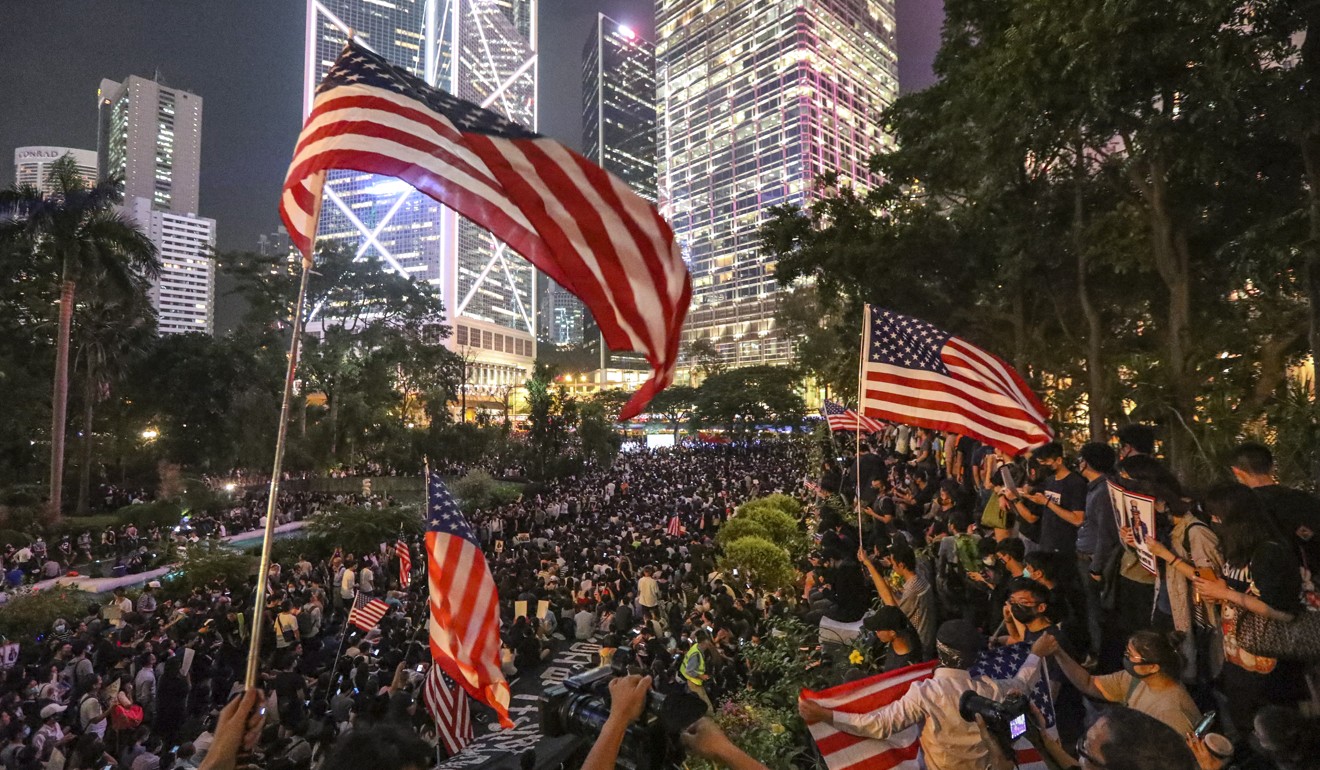
US delegates at Beijing security forum set to face tough time over stance on Hong Kong, ‘provocation’ in South China Sea
- Senior PLA figures expected to use Xiangshan Forum to take aim at US representatives over Washington’s ‘meddling’ in China’s internal affairs, member of Chinese delegation says
- But hosts may also have to face difficult questions from concerned investors over handling of protests in Hong Kong
This year’s Xiangshan Forum – a platform for discussion of Asia-Pacific security and defence issues – runs from Sunday to Tuesday.
“The Xiangshan Forum is supposed to be a platform for discussing regional security issues, but senior leaders from the People’s Liberation Army will denounce America’s provocation and proclaim the PLA’s determination to defend China’s sovereign and territorial integrity,” the source said.
“All those provocations will be severely condemned by Chinese leaders at the forum.”

With the theme of “Maintaining International Order and Promoting Peace in the Asia-Pacific”, the main discussion topics at this year’s event include innovation in security concepts, regional security architecture, how to build strategic trust and confidence, and cooperation on counterterrorism.
Also last year, Chinese Defence Minister Wei Fenghe accused the US of “seriously damaging the Sino-US relationship and mutual trust”, and vowed to take action to defend Beijing’s interests.

Rajeev Ranjan Chaturvedy, a visiting fellow at the S. Rajaratnam School of International Studies in Singapore, said it was very likely Hong Kong would be among the hot topics for discussion.
“I’m sure some people will raise questions about it and speakers may even talk about it, but they will face a lot of resistance from the Chinese delegates,” he said.
“Beijing is hypersensitive about its territorial sovereignty.”
A Beijing-based military insider said the US would not be sending any high-ranking officials.
“The US military officer [leading the delegation] will not make a speech because of his low rank,” the person said.
According to a Singapore-based China watcher, who also requested anonymity, the situation in Hong Kong was of great interest to investors across Southeast Asia who, despite not speaking out, had been following developments closely.
“But in the long term, that has a negative impact because it reduces competition.”
Investors and academics in the region were also concerned that foreign companies operating on the Chinese mainland now felt obliged to stand against Hong Kong so as not to upset Beijing, he said.

